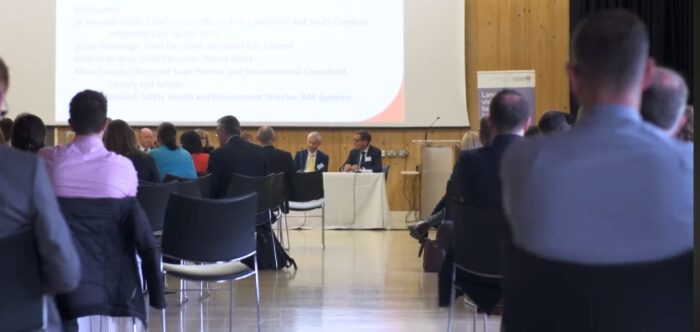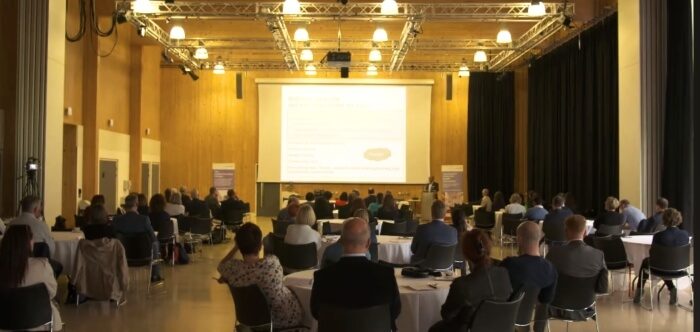Constant learning and evolution are essential in the realm of medicine. With rapidly advancing medical technology, research, and techniques, one might wonder, “Do doctors go to conferences?”
Yes indeed, they do. In the heart of bustling cities or serene resorts, doctors converge at conferences, not just as attendees but often as distinguished speakers. These events aren’t merely for name tags and handshakes. They are platforms for medical professionals to share groundbreaking research, soak in the latest advancements, and strengthen connections with peers.
With the added benefit of earning continuing medical education credits, conferences become an integral component of a doctor’s professional journey. Here in this article, we’ll dig deeper into the significance of these gatherings and the role they play in shaping modern medicine.
What’s the Purpose of a Conference?
Sharing knowledge and ideas in today’s interconnected world is pivotal. Conferences serve as conduits for such exchanges. They bring together minds from various fields under one roof.
The primary purpose of a conference is to facilitate knowledge dissemination. Professionals present research, discuss findings, and introduce innovations. These gatherings also foster networking. Attendees connect with peers, establish collaborations, and often ignite transformative ideas. Through these interactions, industries evolve, and individuals grow professionally.
Do Doctors Go to Conferences?
Yes, absolutely, doctors do attend conferences such as International Nursing and Healthcare conferences. These events are vital platforms for their professional growth and updating their medical knowledge.
Continuous Learning and Professional Development
Doctors have an obligation to stay updated with medical advancements. Conferences provide firsthand knowledge of recent discoveries. Thus, continuous learning becomes seamless and effective.
Networking and Collaborations
Building professional relationships is paramount in medicine. Conferences foster interactions among peers from different regions. Such connections can lead to collaborations or knowledge exchanges.
Earning CME Credits
For many doctors, continuing medical education (CME) credits are mandatory. Conferences often provide opportunities to earn these credits. Hence, attending helps meet professional requirements.
Showcasing Research and Innovations
Doctors can present their research findings at these events. Sharing their discoveries widens its impact on the medical community. It also invites feedback, fostering improvement and innovation.
Exposure to New Medical Technologies
The medical field is continually evolving with new technologies and equipment. Conferences often feature exhibitions of the latest tools and gadgets. Doctors can explore, learn, and even get hands-on experience.
Holistic Approach to Medicine
Beyond just clinical practices, conferences sometimes focus on holistic health. They delve into topics like patient communication, mental health, and alternative treatments. This broadens a doctor’s perspective on patient care.
Opportunities for Career Advancement
Being active in conferences can elevate a doctor’s professional profile. Speaking engagements or leadership roles at these events can lead to recognition. Such exposure can open doors to new career opportunities.
Cultural and Global Medical Perspectives
With attendees from around the world, conferences provide a global viewpoint. Doctors can learn about medical challenges and solutions from various cultures. This global insight enriches their own practice and approach.
Types of Conferences Beneficial to Doctors
Doctors have a vast array of conference types available to them, each catering to specific needs and areas of interest. Here’s a breakdown:
Clinical Conferences
Focused on clinical practices, these conferences discuss patient care, new treatment modalities, and patient management techniques. They are valuable for doctors who want to stay updated with the latest clinical guidelines.
Research Conferences
These events highlight new findings, studies, and medical research. Attendees can present their work, learn about groundbreaking discoveries, and explore potential research collaborations.
Medical Technology and Innovation Conferences
Showcasing the latest in medical technology, equipment, and software, these conferences are essential for doctors keen on integrating new technologies into their practices.
Speciality-specific Conferences
From cardiology to neurology, every medical specialty has its conferences. They delve deep into the nuances of the specific field, making them invaluable for specialists.
Medical Education Conferences
Tailored for educators in the medical field, these events discuss curriculum development, teaching methodologies, and student evaluation techniques.
Holistic and Alternative Medicine Conferences
For those interested in complementary and alternative medicine, these conferences explore therapies like acupuncture, herbal medicine, and mind-body practices.
Healthcare Management and Policy Conferences
Targeting the administrative side of medicine, these events discuss healthcare policies, hospital management, patient safety, and quality control.
Global Health and Medical Missions Conferences
Focusing on global health challenges, these conferences can be beneficial for doctors interested in humanitarian missions or understanding global health disparities.
Bioethics and Medical Law Conferences
These conferences address the ethical dilemmas and legal aspects of medicine, from patient rights to cutting-edge technologies like gene editing.
Interdisciplinary Conferences

Each type of conference offers unique opportunities for learning, networking, and professional growth, ensuring that doctors can find events that resonate with their specific interests and career goals.
How Do Doctors Get Benefited By Attending a Conference?
Conferences emerge as pivotal platforms for professional enhancement in the ever-evolving medical landscape. These events not only offer a wealth of information but also foster connections and growth opportunities. Here’s a deeper look into the manifold benefits for doctors:
Deepened Knowledge Base
Medical conferences act as repositories of the latest research and clinical findings. By attending these conference sessions, doctors immerse themselves in new studies, methodologies, and treatments. This constant updating ensures they offer the best possible care, aligning with the latest medical standards.
Enhanced Professional Network
Beyond the sessions and workshops, conferences provide a fertile ground for networking. Doctors get the chance to meet industry leaders, researchers, and peers from diverse regions. These interactions can lead to collaborative research, shared knowledge, or even new job opportunities.
Opportunities for Skill Enhancement
Many conferences go beyond mere presentations. They include hands-on workshops and training sessions. Here, doctors can practice new surgical techniques, understand novel diagnostic tools, or learn about the latest drug therapies, ensuring their skills remain at the forefront of the medical field.
Broadened Perspectives
With participants from all over the world, conferences provide a melting pot of medical practices and philosophies. Doctors are exposed to a range of approaches to diagnosis, treatment, and patient care. Such diverse exposure enriches their own practice, allowing them to consider multiple viewpoints and solutions.
Recognition and Career Growth
For many doctors, conferences serve as a stage to showcase their work. Whether it’s through research presentations, panel discussions, or keynote speeches, they can gain recognition. This visibility can lead to further research opportunities, academic collaborations, or career advancements.
Staying Updated on Medical Technologies
The world of medical technology is ever-changing. Conferences often feature exhibitions where manufacturers display the latest innovations. Doctors can get hands-on experience, understand the potential of new tools, and subsequently incorporate them into their practices, ensuring they stay technologically advanced.
Through conferences, doctors not only fortify their knowledge but also carve pathways for future growth, collaborations, and innovations. They emerge not just as better professionals but also as key contributors to the global medical community.
Tips to Find the Right Conference for Doctors
Navigating the vast sea of medical conferences can be daunting for doctors. Choosing the right one is crucial for optimal benefits. Here are some tailored tips to assist in the selection process:
- Research the Agenda: Before registering, scrutinize the conference agenda. Ensure it aligns with your interests and offers valuable sessions.
- Check Accreditation: Accredited conferences often provide CME credits. Doctors can thus fulfil their mandatory education requirements while gaining knowledge.
- Consider the Speakers: Prominent speakers often indicate a high-quality conference. Research their credentials to gauge the event’s credibility.
- Gauge Practicality: Logistics matter; consider the conference’s location and duration. Ensure it fits your schedule and doesn’t strain your commitments.
- Seek Peer Recommendations: Colleagues and mentors can offer insights. Their past experiences can guide you toward beneficial conferences.
- Explore Technological Exhibitions: If you’re keen on medical technology, seek conferences with tech exhibits. These offer firsthand exposure to the latest innovations.
- Analyze Feedback from Previous Years: Past attendees often share reviews online. Their feedback can provide a glimpse into the conference’s quality and relevance.
A meticulously chosen conference can immensely benefit a doctor’s professional trajectory. By applying the tips mentioned above, doctors can invest their time in events that truly resonate with their aspirations and learning needs.
Final Thoughts
In the constantly changing landscape of medicine, staying updated is more than just a necessity; it’s a professional imperative. The question, do doctors go to conferences, finds its clear answer in the myriad of benefits these gatherings offer.
From facilitating a deeper understanding of clinical advancements to enabling invaluable networking opportunities, conferences serve as catalysts for professional growth. They not only open doors to the latest research and technologies but also create avenues for holistic approaches to patient care.
Moreover, with the diverse range of conference types available, doctors can pinpoint events that align seamlessly with their interests. In essence, conferences are instrumental in sculpting the future of medicine, ensuring doctors remain at the forefront of innovation and care.







